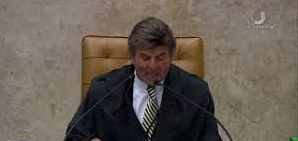
A toxicologist’s findings reveal Karen Read’s intoxication levels while new evidence raises questions over the investigation
As the fifth week of Karen Read’s murder trial unfolded, the jury heard from a former Massachusetts state police toxicologist who revealed that Read’s blood alcohol level, measured eight hours after a night of drinking, was near the legal limit for intoxication. Read is accused of leaving her boyfriend, Boston police officer John O’Keefe, for dead in a snowbank after hitting him with her SUV following a party in January 2022.
Read has pleaded not guilty to second-degree murder, with her defence team asserting that the investigation was compromised due to the homeowner’s ties to local law enforcement. They also claim that O’Keefe was assaulted inside the house before being left outside, a point they suggest was deliberately ignored by authorities.
Nicholas Roberts, a toxicologist who reviewed the blood test results, testified that Read’s blood alcohol content (BAC) at 9 a.m. was between 0.078% and 0.083%, which is close to the legal threshold in Massachusetts. Taking into account her last drink at 12:45 a.m., Roberts estimated that her peak BAC would have been significantly higher, between 0.135% and 0.292%. This level suggests significant intoxication at the time of the incident.
The prosecution’s case includes testimonies from multiple witnesses who recalled Read asking, “Did I hit him?” or later admitting, “I hit him,” following the discovery of O’Keefe’s body. There were also accounts of an unstable relationship between the couple, with O’Keefe reportedly trying to end it. His niece and nephew testified about their uncle’s turbulent relationship with Read, which had deteriorated over time.
On the defensive side, the legal team has argued that law enforcement prematurely zeroed in on Read due to her status as an outsider, avoiding a deeper look into other potential suspects. Among those implicated by the defence are Brian Albert, the homeowner, and Brian Higgins, a federal agent who was present at the party.
Higgins, a special agent with the Bureau of Alcohol, Tobacco, Firearms and Explosives, had previously testified about sending flirtatious texts to Read before the incident. However, during his testimony on Tuesday, Higgins admitted to having destroyed his phone after getting a new one, just before being legally ordered to preserve evidence for the investigation. Read’s lawyer, David Yannetti, questioned the timing, suggesting that Higgins deliberately discarded the phone to conceal communications between him and Albert.
This latest testimony has cast further doubt on the investigation, raising new questions over the handling of evidence and the focus on Read as a suspect.












